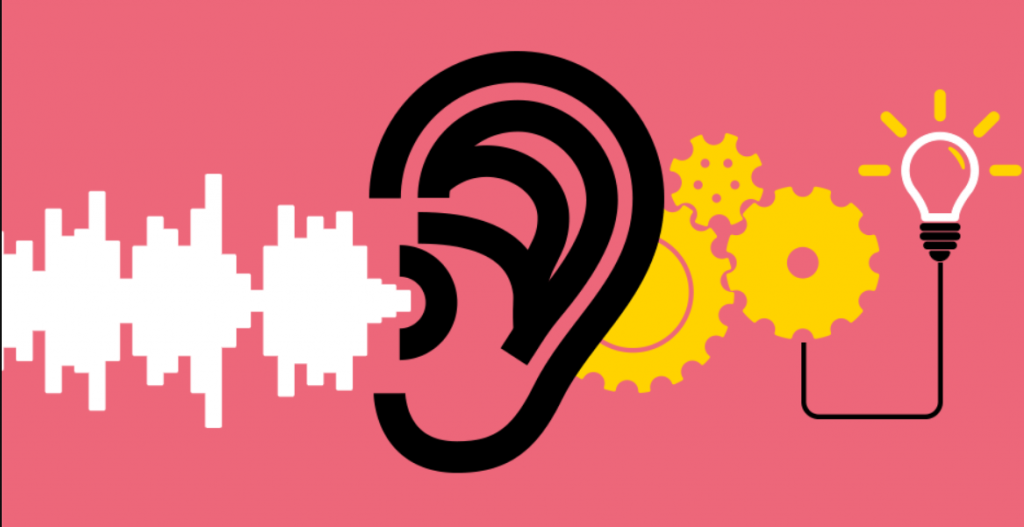Education & Career Trends: November 20, 2022
Curated by the Knowledge Team of ICS Career GPS

Content Credit:
- Article by John Stoker, published on entrepreneur.com. Original article link.
Listening is an important leadership skill because it contributes to engagement. People who feel like their perspective matters share information openly and candidly which can be invaluable in effective problem-solving and timely goal accomplishment for both individuals and teams. An open, listening culture communicates value for individuals, their perspectives and experience.
Unfortunately, we often inhibit or prevent real connection when we knowingly or unknowingly engage in ineffective listening practices.
Here are seven different types of listening that can negatively impact our ability to effectively connect with and truly hear what others have to say.
1. Evaluative listening.
- This listening behaviour is on display when the person is either constantly agreeing or disagreeing with you.
- They evaluate everything you say from their perspective.
- The problem with this type of listening is that it is based on a selective perspective — their own.
- Consequently, they may likely miss critical information that is offered by others.
- Both parties get caught up in the process of disagreement rather than understanding one another.
2. Self-protective listening.
- This is the type of listening that I(the author) experienced with the person I was coaching.
- He was so filled with negative emotion and so focused on telling his story, that there was no room for anything else.
- When I tried to ask questions or offer alternative interpretations of his experience, he would simply return to the recitation of his negative experience.
- What was interesting was that as he retold his experience, his story picked up emotional intensity with each telling.
- These negative emotions seemed to further hijack rationality as he continued to protect his interpretation of the situation and the legitimacy of his feelings.
3. Assumptive listening.
- This type of listening occurs when we assume we know what the person will say or what they want.
- We try to figure out what the person is thinking or wanting rather than listening to what the person is actually saying.
- Setting aside our assumptions about people is challenging because of the past experience or history that we have with them.
- In order to overcome this negative form of listening, we must set our thinking aside and give our full attention to the individual and their message, allowing them time to express their thoughts and feelings.
4. Judgmental listening.
- This type of listening takes the approach of criticising all that the person says or does.
- You can tell when a person is engaged in this listening behaviour because they disagree, condemn or criticise whatever someone else may offer.
- Unfortunately, when someone responds this way, the other person becomes tired or afraid of being put down, so they quit speaking up and sharing their perspective.
- They withdraw and will eventually become completely disengaged.
5. Affirmative listening.
- A person who engages in this type of listening focuses solely on whether or not the person who is speaking agrees with their point of view.
- Consequently, they don’t hear, nor do they explore, differing points of view.
- They like to be acknowledged, affirmed and validated, so they listen only from that perspective and miss valuable information.
6. Defensive listening.
- This listening behaviour occurs when a person takes everything that another may say as a personal attack.
- Such an interpretation leads the individual to “yeah, but” everything the other person says.
- This type of behaviour prevents them from exploring or understanding differing views and experiences of others.
- They are only interested in defending their own perspective
7. Authoritative listening.
- This type of listener always has to be right. It is also not uncommon for them to offer advice.
- They engage in far too much “should-ing” to people.
- These listeners imply that you may not have the ability to complete a task or figure something out on your own, so they tell you what you should or need to do.
- This is a strategy for controlling the situation and guaranteeing that the desired outcome will be what they want it to be.
It is interesting to note that these differing listening behaviours are often self-projections of our own inadequacies. Additionally, when we engage in these types of listening approaches, we are seeking something for ourselves rather than trying to truly understand one another.
No wonder really listening to someone creates engagement! People come away with a sense that what they have to say is important, and more than that, they understand that they are of value. Recognising and working to overcome these negative listening practices will improve the quality of your leadership, increase positive results and lead to a more engaged and productive work force.
Have you checked out yesterday’s blog yet?
How To Organise Your Mind
(Disclaimer: The opinions expressed in the article mentioned above are those of the author(s). They do not purport to reflect the opinions or views of ICS Career GPS or its staff.)
Like this post? For more such helpful articles, click on the button below and subscribe FREE to our blog.




2 Replies to “Are You Really Listening? 7 Barriers to Listening Effectively.”